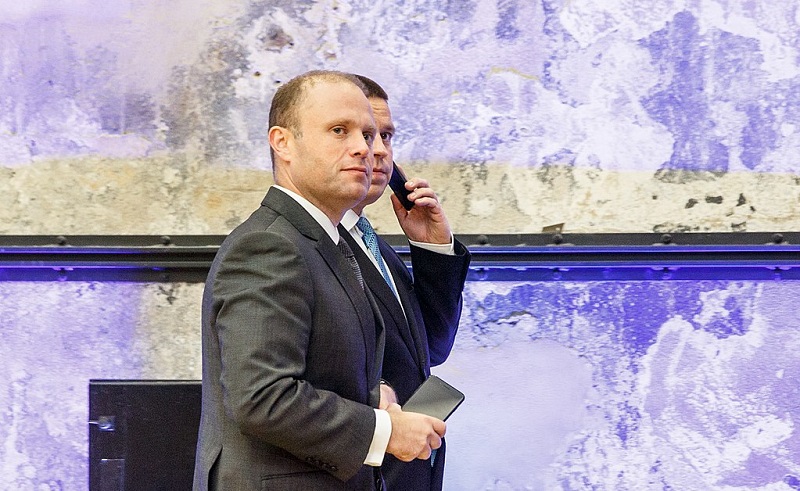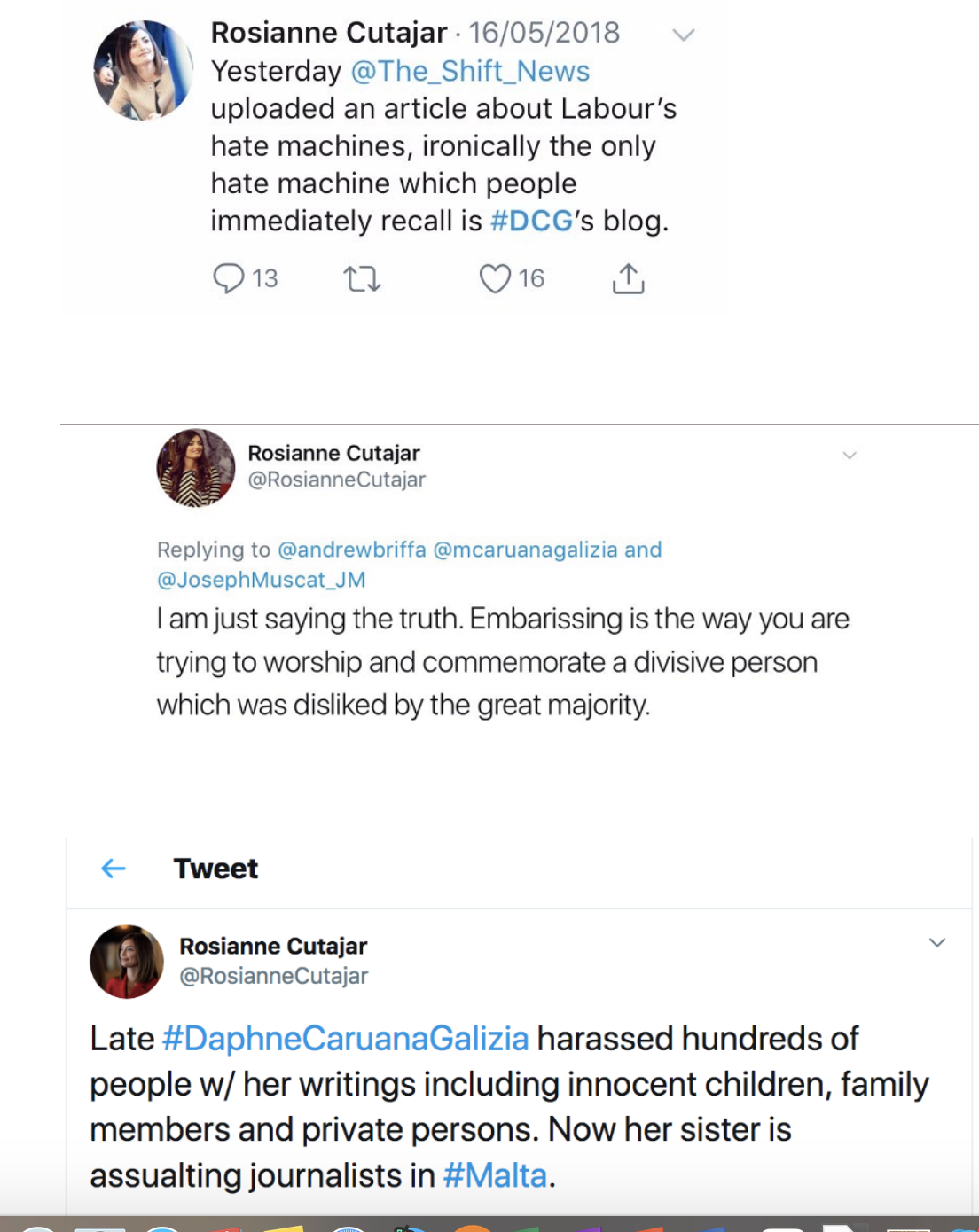The long list of recommendations proposed by the report into the assassination of journalist Daphne Caruana Galizia could transform Malta and increase the safety of journalists across Europe, but initial resistance from the government indicates an unwillingness to hold key figures to account.
The 400+ page report laid down recommendations that, if implemented, would reform almost every aspect of Malta’s government, civil society and law enforcement, as well as its troubled media environment and conditions for journalists.
The board’s report blamed the “business-friendly” approach of former prime minister Joseph Muscat and his chief of staff, Keith Schembri (himself a businessman with offshore structures in a bewildering array of jurisdictions) for creating “an incestuous marriage between elements in politics and business” that resulted in a climate where both illegal and illicit behaviour flourished with the cooperation of public officials.

Caruana Galizia’s investigations into these activities led to a direct confrontation with the two centres of power. In the opinion of the board, “it was her work about the intrigues between big business and politics that led to her assassination.”
This isn’t just a Maltese problem, a product of small island life where everyone knows everyone else. The investigation into the murder of Slovak journalist Jan Kuciak uncovered similar disturbingly close links between corrupt politicians and the businessman suspected of commissioning the killing.
In Slovakia’s case, the corrupt were investigated and prosecuted, but in Malta the institutions acted to obstruct such investigations.
“This lethargic lack of activity from the institutions [in Malta] is inexplicable and censurable,” the report said. “Not only was there a lack of investigation of serious allegations of breaches of criminal laws, but there was also no investigation of allegations of illicit public administration. This cannot be simply explained by incompetence or indifference.”
The board’s strong recommendations for legal amendments to deter the use of political or financial power to escape justice, and laws criminalizing obstruction of justice by government officials, are aimed at ending a situation where the heads of regulatory and law enforcement bodies — who in Malta are appointed by and answerable to the prime minister — acted to ensure impunity rather than prevent it.
Malta has already begun implementing a series of reforms to strengthen good governance, in line with recommendations by the Council of Europe, Greco, the Venice Commission, and the European Parliament, but the report warned that these could easily be circumvented when public officials choose not to act.
“The board was faced with situations in which the established procedures dictated by good governance looked like they were being followed on paper,” they said, “but in fact were simply means with which those involved would achieve their objectives.”
The creation of truly independent regulatory bodies and law enforcement structures would go a long way to ending the “atmosphere of impunity, generated from the highest levels in the heart of the administration of the Office of the Prime Minister” which the board said spread to other entities, “leading to the collapse of the rule of law” in Malta.
These proposals are meant to remedy institutional weaknesses within the Maltese system, but it was the board’s recommendations on the protection of journalists and the public’s right to information that have broader ramifications for Europe.
If implemented in full, these legal and procedural recommendations would strengthen the protection of journalists through the establishment of a specific police unit to identify threats.
In Caruana Galizia’s case, the board states, “it became obvious that the journalist had obtained and was still receiving information that was most sensitive.” The political reaction to her investigations — a sustained campaign of personal attacks, led by representatives of the State, that included denigration, hatred, and legal attacks on her finances — should have led to heightened protection. Instead, inaction created “a favourable climate for anyone who wanted to eliminate her while facing the least possible amount of consequences.”
Requiring the police to investigate allegations made in a journalist’s investigative work could have prevented events from escalating this far. Had the police, the Financial Intelligence Analysis Unit or the Attorney General investigated the high level corruption Caruana Galizia was reporting, and prosecuted the powerful politicians involved in it, she would still be alive today.
Requiring police to take action rather than take cues from government would strengthen accountability and lend formal weight to the role of journalism as one of the pillars of a democratic society.

The creation of an Ombudsman on journalistic ethics and a revision of the Media Defamation Act to address the problem of SLAPPs and other vexatious libel cases would prevent the sort of legal abuses Caruana Galizia was subjected to throughout her life.
The board also made strong recommendations on freedom of information, which has been an area of contention in Malta, with the government going so far as to refuse to table contracts for major infrastructure projects in parliament to avoid scrutiny by the Opposition.
Critical news media — including The Shift — are excluded from government press conferences on announcements related to their own investigations. Journalists — including internal press members — have been unlawfully detained by unofficial ‘security people’ who were in fact Labour Party loyalists. And the government routinely ignores Freedom of Information requests, even when required by law to comply with them.
The public inquiry board recommends strong measures to remedy this toxic situation, including a constitutional amendment to recognise the right of an individual to receive information from the state and public administration, and the obligation to provide such information.
Reforms to the Freedom of Information Act are also called for in order to limit a prevailing culture of confidentiality and secrecy justified under the pretext of privacy and commercial sensitivity.
The Broadcasting Authority also came in for harsh criticism, with the board noting that the public broadcaster failed in its duty to impartial reporting when it did not adequately report on serious allegations of corruption.
An analysis carried out by The Shift revealed that the public broadcaster consistently under-reported major scandals which cast the government and the Labour Party in a bad light.
Provisions to ensure government advertising in the media is distributed fairly rather than punitively would also go a long way towards creating a sustainable environment for independent media.
A coalition of 10 press freedom NGOs welcomed the report as being of global significance in battling impunity for crimes against journalists.
“What happens in Malta could have a knock-on impact elsewhere,” said Rebecca Vincent, international campaign director for Reporters Without Borders (RSF), citing the recommendations as “a model for how to respond to such cases in other countries.”
The family of the slain journalist described it as “a historic opportunity to ensure real change for the safety of journalists and a process of national healing following the traumatic assassination of Daphne Caruana Galizia on 16 October 2017.”
Unfortunately, the government’s refusal to commit to a specific plan for implementing the recommendations, and prime minister Robert Abela’s rejection of the board’s conclusion that the Labour government had fostered a climate of impunity for criminals, was a clear indication that the road to justice will be a long one.
While Abela reiterated his apologies for the state’s role in facilitating the assassination, his statements often clashed with the inquiry’s findings, and a large chunk of his speech consisted in praise for his own government’s legislative reforms.
The Caruana Galizia family accepted the apology, but their legal team warned that if Malta fails to adequately implement reforms, further legal action could occur, including input from the Parliamentary Assembly of the Council of Europe.
The Shift News has published the evidence it provided to the board of inquiry following a six-month investigation into the online hate groups associated with the governing party and the dehuminations campaign against Daphne Caruana Galizia orchestrated by those in government in Malta. You can read it here.
The following project is weekly Maltese Roundups prepared by The Shift News (Malta) offering the latest news in Daphne Caruana Galizia case.

